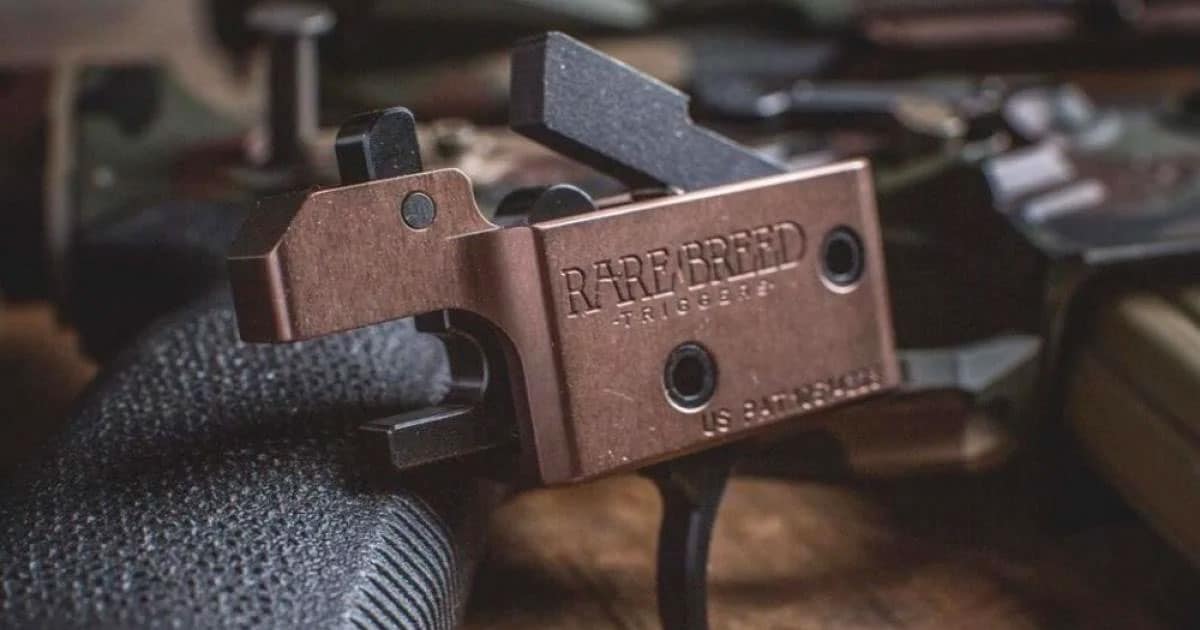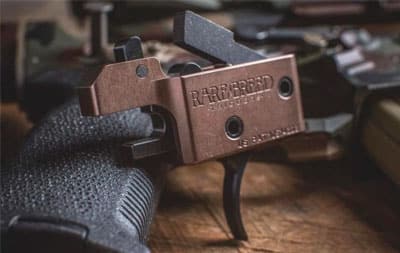 Rare Breed Triggers suffered a loss in a Brooklyn District court on Tuesday when Federal Judge Nina R. Morrison issued a preliminary injunction against the business.
Rare Breed Triggers suffered a loss in a Brooklyn District court on Tuesday when Federal Judge Nina R. Morrison issued a preliminary injunction against the business.
The company was founded in Florida and is now based in Fargo, North Dakota. It is embroiled in a battle with the Bureau of Alcohol, Tobacco, Firearms and Explosives (ATF) over its FRT-15 drop-in semiautomatic trigger.
These devices are commonly known as forced reset triggers, and the ATF wants them to go away. The company reportedly has sold over 103,000 FRT-15s at a cost of $380 each.
The setback for Rare Breed followed by only six days the temporary restraining order won by the company and the National Association for Gun Rights (NAGR). In a district-level federal case in Texas, the ATF was prohibited from performing enforcement actions against the plaintiffs in the Lone Star State.
It was a different outcome in Brooklyn.
Morrison ruled that the federal government will likely succeed in its case against Rare Breed. She determined that the defendants most likely were involved in a Klein conspiracy, a nebulous legal concept in which parties work to prevent legal actions by Washington.
According to Rare Breed, its FRT-15 works to increase the rate of fire of the popular AR-15-style weapons. This is accomplished by the device forcing the trigger to reset, though only one round is triggered per pull.
The ATF disputes this description. The government agency instead declared the FRT-15 and the early Wide Open Trigger (WOT) manufactured by Rare Breed enable multiple rounds to be fired with a single trigger pull.
It classified the devices as drop-in auto sears (DIAS) that in essence convert semiautomatic weapons into full-fledged machine guns. This has serious ramifications for the company as well as for lawful gun owners who purchase the devices.
If the FRT-15 is legally deemed a machine gun conversion device, it is regulated under the National Firearms Act of 1934 as an actual machine gun.
As such, they are illegal under federal law since no machine gun manufactured after April 1986 is legal for the public to own. Rare Breed disputes that the devices are indeed machine guns.
The skirmish between the company and the ATF unfolded in July 2021 when Rare Breed was hit with a cease-and-desist order. It ignored the missive and continued to sell the devices, and a court battle ensued. The company unsuccessfully sued the ATF over the edict to stop selling the FRT-15.
Then it was reincorporated in North Dakota, which the ATF claimed was a case of “judge-shopping.” When the Rare Breed suit there was tossed out, the ATF initiated its own case in New York City in what would also appear to be an attempt to pick a friendly judge.
In this case, the ATF claimed that the business operated a group of shell companies to continue selling its devices. It further alleged that Rare Breed utilized the patent for the AR-1 trigger and simply repurposed it for the FRT-15. As the AR-1 trigger was already deemed a machine gun by the ATF, this theoretically would make the FRT-15 also illegal.
Rare Breed strongly denied this accusation and pointed to differences between the two devices. Judge Morrison acknowledged the contrasts in the triggers in her 129-page decision but claimed the “forced reset trigger” aspect “remained unchanged.”
The preliminary injunction from the Brooklyn court ordered Rare Breed Triggers to cease selling the FRT-15, WOT or any other device deemed a forced reset trigger. The company was also commanded to keep all records, including those of the purchasers of the triggers.

